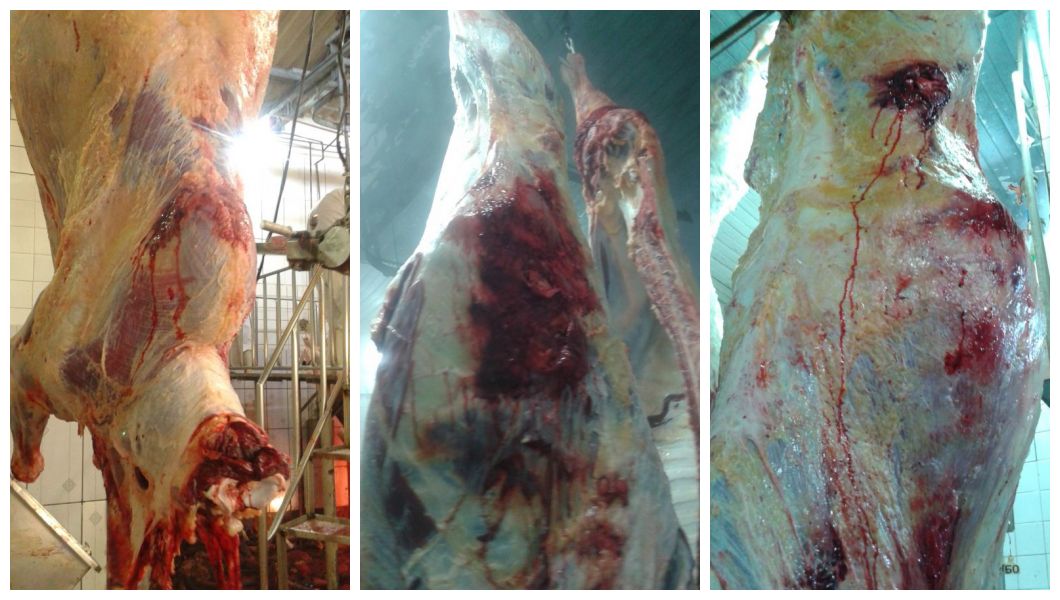Economic losses due to hematoma in bovine carcasses from the north central mesoregion of Paraná
DOI:
https://doi.org/10.21708/avb.2019.13.3.8327Resumen
Food security is important, and is being increasingly focused on during animal production. In bovine carcasses, we can find hematomas that are the consequences of traumas caused by several factors. These cause the extravasation of blood from vessels, causing the blood to accumulate in muscular tissues, which can then serve as a substrate for bacterial proliferation. The objective of this study was to quantify the occurrence of hematomas in bovine carcasses and to determine their degree of severity, to measure the economic impact these hematomas can cause. The slaughter of 385 animals was monitored, and 56.88% showed some type of hematoma. In injured animals, there were a total of 427 lesions, with an average of 1.94 of injuries per animal. There was a total loss of 65.7 kg of meat, with following proportional distribution: 12.32% in the front room (8.1 kg), 33.18% near the ribs and the lumbar region (21.8 kg), and 54.49% (35.8 kg) in the hindquarter. The resulting economic loss was calculated to be a total of US $ 206.66 (R $ 817.93). We conclude that the occurrence of hematoma lesions in bovine carcasses from the north central mesoregion of Paraná is responsible for economic losses.
Descargas

Descargas
Publicado
Número
Sección
Licencia
Autores que publicam na Acta Veterinaria Brasilica concordam com os seguintes termos: a) Autores mantém os direitos autorais e concedem à revista o direito de primeira publicação, com o trabalho simultaneamente licenciado sob a Licença Creative Commons Attribution que permite o compartilhamento do trabalho com reconhecimento da autoria e publicação inicial nesta revista. b) Autores têm autorização para assumir contratos adicionais separadamente, para distribuição não-exclusiva da versão do trabalho publicada nesta revista (ex.: publicar em repositório institucional ou como capítulo de livro), com reconhecimento de autoria e publicação inicial nesta revista. c) Autores têm permissão e são estimulados a publicar e distribuir seu trabalho online (ex.: em repositórios institucionais ou na sua página pessoal) a qualquer ponto antes ou durante o processo editorial, já que isso pode gerar alterações produtivas, bem como aumentar o impacto e a citação do trabalho publicado (Veja O Efeito do Acesso Livre).


 Esta obra está licenciada com uma Licença
Esta obra está licenciada com uma Licença 